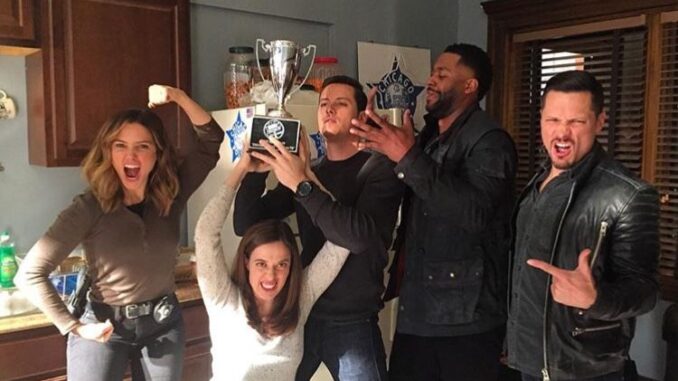
In the high-stakes world of Chicago P.D., few characters embody raw power and gritty determination like Hank Voight. The no-nonsense leader of the Intelligence Unit has long been a symbol of street justice—bending the rules and operating in moral gray zones to get results. But what if, for once, Voight lost? What if Assistant State’s Attorney Nina Chapman’s latest ally, Reid, outmaneuvered him? It may sound like a blow to the character’s legacy, but in reality, Voight losing to Reid could’ve been the best thing to happen for Season 13.
During Season 12, tension between Voight and ASA Chapman quietly escalated. Their clashing ideologies—Chapman’s devotion to legal protocol versus Voight’s ends-justify-the-means philosophy—offered a compelling contrast. Enter Reid, Chapman’s ambitious new partner, who isn’t afraid to call Voight out on his outdated tactics and ethically questionable decisions. The setup was perfect: a new generation of law enforcement professionals taking a stand against Voight’s rogue-style leadership. It was an opportunity to pit two ideologies head-to-head—law versus loyalty, order versus results. But instead of pushing this conflict to the limit, the storyline pulled back. Reid never truly got the upper hand. Voight emerged, once again, untouchable.
Voight has long operated as the untouchable force in Chicago P.D.. Whether internal affairs came knocking or higher-ups tried to rein him in, he always emerged victorious. But this very invincibility risks making the show predictable. By allowing Reid to outsmart or even temporarily sideline Voight, Season 13 could have introduced much-needed vulnerability and evolution to the character. A Voight under pressure—not from street thugs or gang leaders, but from within the justice system—would open the door to an explosive internal crisis. Could he survive in a system that finally says “enough”? Could he adapt to a changing landscape where his methods are no longer acceptable?

Voight losing wouldn’t just impact him. It would ripple across the entire Intelligence Unit. How would Burgess react to a new regime or tighter scrutiny? Would Upton remain loyal to Voight, or start questioning the methods that once felt like justice but now feel like obstacles? If Reid succeeded in removing or outmaneuvering Voight—temporarily or permanently—it could create a schism within the team. Loyalties would be tested. Morals would be questioned. Characters would be forced to grow. Instead of fighting drug lords and traffickers, the team would face their toughest challenge yet: surviving without the man who built them.
Assistant State’s Attorney Reid had the potential to be one of the most compelling antagonists Chicago P.D. has introduced in years. Unlike traditional villains, Reid wouldn’t be out to destroy Voight—but to correct him. To challenge the unchecked power Voight wields. To make the case that law enforcement can’t be above the law. And that’s what made Reid so interesting. He wasn’t driven by revenge or corruption—he was driven by principle. If the writers had let Reid win—just once—it would’ve legitimized his role. He could’ve been a recurring figure, an in-house adversary who’s not evil but effective. The kind of antagonist the show needs to keep things fresh.
For years, fans have watched Voight toe the same moral line. Sure, he’s had moments of doubt—especially after Olinsky’s death and Halstead’s departure—but he usually ends up reaffirming his belief in his own methods. But real growth requires real loss. Losing to Reid could’ve shattered Voight’s illusion of control. It could’ve forced him to question whether his brand of justice still fits into the world he swore to protect. It would’ve been the catalyst for real introspection—and possibly a slow, painful transformation. Would he double down on his ways? Or would he evolve? That journey alone could fuel an entire season.
